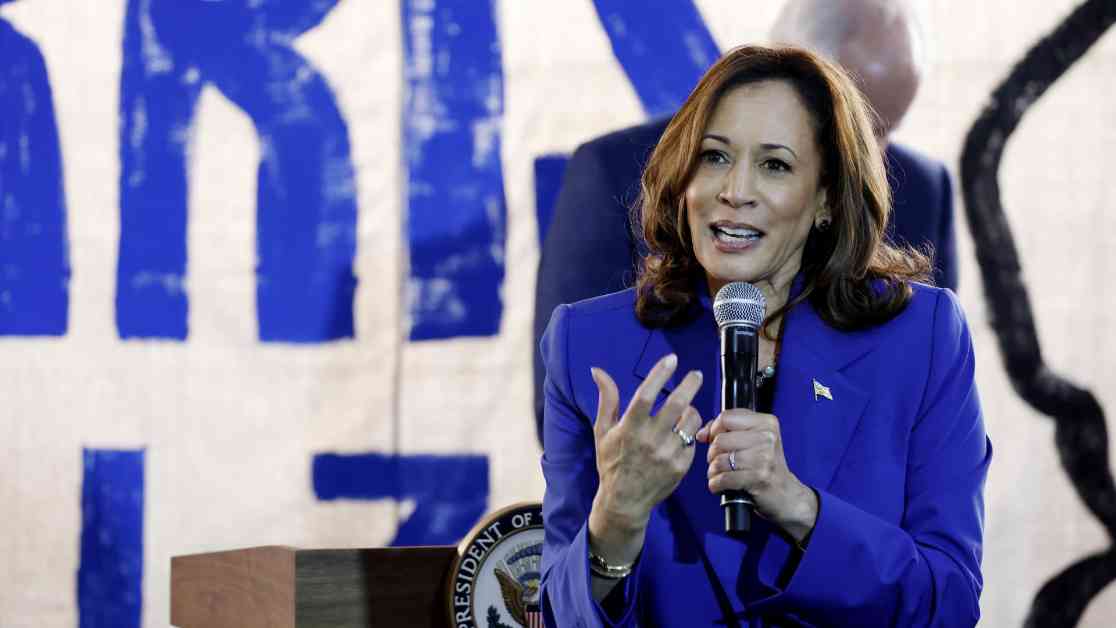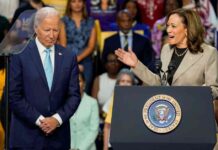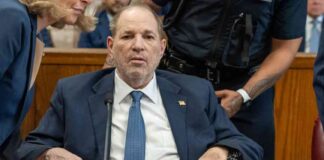Vice President Kamala Harris has proposed a significant increase in the corporate tax rate to 28% as part of her plan to raise revenues and fund ambitious initiatives if she were to become president. This proposal marks Harris’s first major economic policy announcement and is intended to create a more equitable tax system that benefits working people and holds wealthy individuals and corporations accountable.
Harris’s campaign spokesperson, James Singer, emphasized the importance of the proposed tax increase in redistributing wealth and supporting the middle class. He stated, “As President, Kamala Harris will focus on creating an opportunity economy for the middle class that advances their economic security, stability, and dignity.” The move to raise the corporate tax rate to 28% is seen as a strategic approach to generating additional revenue for the government while also addressing income inequality.
If implemented, the 28% corporate tax rate could potentially bring in hundreds of billions of dollars in revenue over the next decade. The Congressional Budget Office estimates that each percentage point increase in the corporate tax rate equates to approximately $100 billion in additional funds. This policy change would also reverse a significant portion of former President Donald Trump’s tax cuts from 2017, which lowered the corporate tax rate from 35% to 21%.
Harris’s proposal aligns her with President Joe Biden’s recent budget plan, which also includes a corporate tax rate increase to 28%. While the move is likely to face opposition from Republicans, Harris may need support from Democrats controlling both the House and Senate to pass it through Congress. The upcoming expiration of several provisions of the Trump tax cuts in 2025 could influence negotiations on tax policy, providing Harris with leverage in discussions with the GOP.
In response to Harris’s proposal, Trump has expressed intentions to further reduce taxes, including those on businesses, if re-elected as president. He has warned that failing to renew his expiring tax cuts could have detrimental effects on the economy. Singer criticized Trump’s economic agenda, labeling it as “extreme Project 2025” and raising concerns about its potential impact on the deficit and middle-class taxes.
As Harris continues to unveil her policy initiatives leading up to the Democratic convention, she faces the challenge of explaining how she plans to fund costly programs such as expanding the child tax credit and addressing housing and medical debt. While specific cost estimates for these proposals have not been provided, Harris’s emphasis on increasing the corporate tax rate to 28% signals her commitment to prioritizing the needs of working families and reducing income inequality.
Implications of a 28% Corporate Tax Rate Increase
The proposed corporate tax rate increase to 28% by Vice President Kamala Harris carries significant implications for businesses, the economy, and government revenues. Advocates argue that raising the corporate tax rate is a crucial step towards a more equitable tax system, while opponents raise concerns about its potential impact on economic growth and competitiveness.
Proponents of the tax hike argue that it would generate much-needed revenue to fund essential government programs and initiatives. By ensuring that wealthy individuals and corporations pay their fair share, the 28% corporate tax rate increase could help reduce income inequality and address budgetary challenges facing the country. Additionally, supporters believe that the move would promote fiscal responsibility and contribute to a more balanced distribution of wealth.
On the other hand, critics of the proposed tax increase warn that it could have adverse effects on businesses and the economy as a whole. A higher corporate tax rate may discourage investment, hinder job creation, and reduce economic growth, according to opponents of the policy. They argue that businesses would be less inclined to expand their operations or make new investments if faced with higher tax burdens, ultimately leading to negative consequences for the economy.
Comparing Harris’s Proposal to Previous Tax Policies
Vice President Kamala Harris’s call for a 28% corporate tax rate stands in contrast to her previous stance on tax policy during her 2020 presidential campaign. In her earlier bid for the presidency, Harris advocated for the full repeal of President Trump’s tax cuts, which would have returned the corporate tax rate to 35%. The decision to lower the proposed rate to 28% reflects a shift in Harris’s approach to tax policy and aligns her more closely with President Biden’s current budget proposal.
President Biden’s budget plan includes the corporate tax rate increase to 28% as part of a broader strategy to raise revenue and address economic disparities. The proposed tax hike is intended to fund key government programs and initiatives aimed at supporting working families and strengthening the middle class. By adopting a 28% corporate tax rate, Harris signals her commitment to advancing a more progressive tax agenda while also considering the potential impact on businesses and the economy.
Challenges and Opportunities in Implementing a 28% Corporate Tax Rate
The proposal to increase the corporate tax rate to 28% presents both challenges and opportunities for Vice President Kamala Harris and her economic agenda. While the move is expected to generate significant revenue for the government and support key policy initiatives, it also faces resistance from opponents who argue that higher taxes could hinder economic growth and competitiveness.
One of the main challenges in implementing a 28% corporate tax rate is garnering support from Congress, particularly from Republicans who may oppose the tax hike. Harris will need to work with Democratic lawmakers to build a coalition in favor of the policy change and navigate potential obstacles in the legislative process. Additionally, concerns about the impact of the tax increase on businesses and the economy could pose challenges in gaining broader public support for the proposal.
Despite these challenges, the 28% corporate tax rate increase also presents opportunities for Harris to advance her economic priorities and address income inequality. By emphasizing the importance of a fair and equitable tax system, Harris can position herself as a champion for working families and advocate for policies that promote economic security and stability. The proposed tax hike could also allow Harris to fund key initiatives such as expanding the child tax credit and reducing the burden of housing and medical debt on American families.
In conclusion, Vice President Kamala Harris’s proposal to increase the corporate tax rate to 28% represents a significant shift in tax policy and economic priorities. The move is intended to raise revenue, address income inequality, and fund essential government programs, while also facing challenges in garnering support and navigating potential economic implications. As Harris continues to outline her vision for economic reform, the proposed tax hike serves as a key component of her agenda to create a more equitable and inclusive economy for all Americans.






















